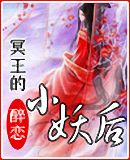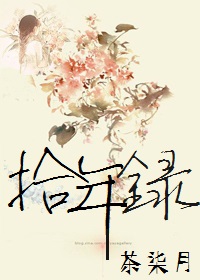芒果街上的小屋 作者:[美]罗桑德拉·希斯内罗丝-第3部分
按键盘上方向键 ← 或 → 可快速上下翻页,按键盘上的 Enter 键可回到本书目录页,按键盘上方向键 ↑ 可回到本页顶部!
————未阅读完?加入书签已便下次继续阅读!
in the sink。 She couldn't see the ceilings dusty with flies; the ugly maroon walls; the bottles and sticky spoons。 I can't forget the smell。 Like sticky capsules filled with jelly。 My aunt; a little oyster; a little piece of meat on an open shell for us to look at。 Hello; hello。 As if she had fallen into a well。
I took my library books to her house。 I read her stories。 I liked the book The Water Babies。 She liked it too。 I never knew how sick she was until that day I tried to show her one of the pictures in the book; a beautiful color picture of the water babies swimming in the sea。 I held the book up to her face。 I can't see it; she said; I'm blind。 And then I was ashamed。
She listened to every book; every poem I read her。 one day I read her one of my own。 I came very close。 I whispered it into the pillow:
I want to be
like the waves on the sea;
like the clouds in the wind;
but I'm me。
One day I'll jump
out of my skin。
I'll shake the sky
like a hundred violins。
That's nice。 That's very good; she said in her tired voice。 You just remember to keep writing; Esperanza。 You must keep writing。 It will keep you free; and I said yes; but at that time I didn't know what she meant。
The day we played the game; we didn't know she was going to die。 We pretended with our heads thrown back; our arms limp and useless; dangling like the dead。 We laughed the way she did。 We talked the way she talked; the way blind people talk without moving their head。 We imitated the way you had to lift her head a little so she could drink water; she sucked it up slow out of a green tin cup。 The water was warm and tasted like metal。 Lucy laughed。 Rachel too。 We took turns being her。 We screamed in the weak voice of a parrot for Totchy to e and wash those dishes。 It was easy。
We didn't know。 She had been dying such a long time; we forgot。 Maybe she was ashamed。 Maybe she was embarrassed it took so many years。 The kids who wanted to be kids instead of washing dishes and ironing their papa's shirts; and the husband who wanted a wife again。
And then she died; my aunt who listened to my poems。
And then we began to dream the dreams。
1、上世纪七十年代非常流行的一部由漫画改编的电影《神奇女侠》中的主人公,是美国漫画史上第一位漫画女主角。
2、《水孩子》(The Water Babies),查理·金斯莱(1819~1875)的一部童话经典,讲述小烟囱工汤姆在仙女的帮助下,逃离危险的苦役,去到一处安宁清洁的水下世界,做了个水孩子。后来,经过一连串的奇遇,他习得了各种美德,完成了自己的成长之路,回到陆地,成为一个仁爱正直的人。国内早有周煦良的译本。作者金斯莱是牛津、剑桥的历史学教授,还曾做过维多利亚女王的牧师。学识渊博的他,写出的童话却清新优美,寄寓着对所有稚嫩心灵的爱惜与期望。
《阁楼上的流浪者》
我想要一所山上的房子,像爸爸工作的地方那样的花园房。星期日,爸爸的休息日,我们会去那里。我过去常去。现在不去了。你长大了,就不喜欢和我们一起出去吗?爸爸说。你傲起来了。蕾妮说。我没告诉他们我很羞愧——我们一帮人全都盯着那里的窗户,像饥饿的人。我厌倦了盯着我不能拥有的东西。如果我们赢了彩票……妈妈才开口,我就不要听了。
那些住在山上、睡得靠星星如此近的人,他们忘记了我们这些住在地面上的人。他们根本不朝下看,除非为了体会住在山上的心满意足。上星期的垃圾,对老鼠的恐惧,这些与他们无关。夜晚来临,没什么惊扰他们的梦,除了风。
有一天我要拥有自己的房子,可我不会忘记我是谁我从哪里来。路过的流浪者会问,我可以进来吗?我会把他们领上阁楼,请他们住下来,因为我知道没有房子的滋味。
有些日子里,晚饭后,我和朋友们坐在火旁。楼上的地板吱呀吱呀响。阁楼上有咕咕哝哝的声音。
是老鼠吗?他们会问。
是流浪者。我会回答说。我很开心。
Bums in the Attic
I want a house on a hill like the ones with the gardens where Papa works。 We go on Sundays; Papa's day off。 I used to go。 I don't anymore。 You don't like to go out with us; Papa says。 Getting too old? Getting too stuck…up; says Nenny。 I don't tell them I am ashamedall of us staring out the window like the hungry。 I am tired of looking at what we can't have。 When we win the lottery。。。Mama begins; and then I stop listening。
People who live on hills sleep so close to the stars they forget those of us who live too much on earth。 They don't look down at all except to be content to live on hills。 They have nothing to do with last week's garbage or fear of rats。 Night es。 Nothing wakes them but the wind。
One day I'll own my own house; but I won't forget who I am or where I came from。 Passing bums will ask; Can I e in? I'll offer them the attic; ask them to stay; because I know how it is to be without a house。
Some days after dinner; guests and I will sit in front of a fire。 Floorboards will squeak upstairs。 The attic grumble。
Rats? they'll ask。
Bums; I'll say; and I'll be happy。
《芒果有时说再见》
我喜欢讲故事。我在心里讲述。在邮递员说过这是你的邮件之后。这是你的邮件。他说。然后我开始讲述。
我编了一个故事,为我的生活,为我棕色鞋子走过的每一步。我说,“她步履沉重地登上木楼梯,她悲哀的棕色鞋子带着她走进了她从来不喜欢的房子。”
我喜欢讲故事。我将向你们讲述一个不想归属的女孩的故事。
我们先前不住芒果街。先前我们住鲁米斯的三楼,再先前我们住吉勒。吉勒前面是波琳娜。可我记得最清楚的是芒果街,悲哀的红色小屋。我住在那里却不属于那里的房子。
我把它写在纸上,然后心里的幽灵就不那么疼了。我把它写下来,芒果有时说再见。她不再用双臂抱住我。她放开了我。
有一天我会把一袋袋的书和纸打进包里。有一天我会对芒果说再见。我强大得她没法永远留住我。有一天我会离开。
朋友和邻居们会说,埃斯佩朗莎怎么了?她带着这么多书和纸去哪里?为什么她要走得那么远?
他们不会知道,我离开是为了回来。为了那些我留在身后的人。为了那些无法出去的人。
Mango Says Goodbye Sometimes
I like to tell stories。 I tell them inside my head。 I tell them after the mailman says; Here's your mail。 Here's your mail he said。
I make a story for my life; for each step my brown shoe takes。 I say; 〃And so she trudged up the wooden stairs; her sad brown shoes taking her to the house she never liked。〃
I like to tell stories。 I am going to tell you a story about a girl who didn't want to belong。
We didn't always live on Mango Street。 Before that we lived on Loomis on the third floor; and before that we lived on Keeler。 Before Keeler it was Paulina; but what I remember most is Mango Street; sad red house; the house I belong but do not belong to。
I put it down on paper and then the ghost does not ache so much。 I write it down and Mango says goodbye sometimes。 She does not hold me with both arms。 She sets me free。
One day I will pack my bags of books and paper。 One day I will say goodbye to Mango。 I am too strong for her to keep me here forever。 One day I will go away。
Friends and neighbors will say; What happened to that Esperanza? Where did she go with all those books and paper? Why did she march so far away?
They will not know I have gone away to e back。 For the ones I left behind。 For the ones who cannot out。
《故事背后的故事》
桑德拉·希斯内罗丝,美国当代著名诗人,1954年生于芝加哥。父母都是墨西哥裔移民。从小,有六个兄弟姐妹的她,就随着家庭在芝加哥和墨西哥之间往来迁徙。居无定所的生活和墨西哥裔移民的边缘地位使得希斯内罗丝难以交到长久的朋友,因而变得内向而害羞。从很小的时候起,她就学会了观察人们,在随身携带的一个活页小本子上匆匆记下人们的举动和话语。上学以后,她又把自己的观察写进诗和短篇故事里。
青少年时期的希斯内罗丝广泛阅读各种书籍。十年级时,一个老师发现了她的写作才能,鼓励她向全班同学朗诵自己的作品。希斯内罗丝从大家热烈的回馈中得到信心。她开始在学校文学杂志担任编辑,并被同学们称为“诗人”。
作为一个在多元文化背景的大都市环境中成长起来的年轻女性,Sandra Cisneros与她的主人公Esperanza经历了相似的成长的痛苦。尽管现在她越来越远地离开了她的成长环境,却越来越深地意识到,正是以这种环境为母题的写作,最终令她成名。政府资助使得她能够上大学,而那里的一位作家则推荐她继续深造。Cisneros 进入了爱荷华大学写作班,那个国家里最负盛名的研究生写作班。在1985年接受Martha Satz的采访时,她说,进入爱荷华这样的写作班,对我是一种冲击和震撼。那是一门非常严格而且纪律严明的课程。Cisneros似乎被吓住了,几乎什么都没写。她是班上唯一的拉丁裔学生,她早先的生活背景使她与别的学生疏离。
在当时的一节课上,Cisneros和同学一起讨论Gatson Bachelard的《空间诗学》(Poetics of Space)。教授把“家的记忆”归为一种予人安慰感的概念空间(conceptual space)。Cisneros对此提出了相反的意见,她认为这一概念只会让一个不用做家务的男人感到安慰。她知道她的观点与众不同。她知道,她面对“家”、“回忆”这样的单词时所产生的那种不安感是别的同学感受不到的。很长时间里,家代表的是一所令她尴尬不已的破房子,而她的记忆里充塞着拉丁裔聚居区的街道上形形色色的不同种族的人。回顾过去,Cisneros说,“我认为我在爱荷华经历的文化冲击很重要,它让我意识到自己的他者属性,让我有意地选择了创作主题。”最终,它迫使她考虑起了那种别人写不出来而她可以的东西。某种属于拉丁裔聚居区的东西。Cisneros开始自己的经历为题材进行创作。
1978年,Cisneros从爱荷华大学毕业,获得硕士学位。之后,她去到芝加哥一所拉丁青少年特设高中任教。从许多方面,这份工作把她带回了她的童年,以及她文化上的根。虽然学生们令她精疲力竭,但他们同时也提供给她更多自己记忆之外的成长故事。此后,她来到芝加哥的罗约拉大学担任行政助理和少数族裔和贫困学生辅导员。她看到他们无助的境遇时,发誓要做点什么来帮助他们。Cisneros开始创作《芒果街上的小屋》,讲述她妈妈、婶婶、她自己,还有别的拉丁裔女人和身旁的沦落者的故事。
她说《芒果街上的小屋》产生于她想要给男人笔下的拉丁裔聚居区的面貌增加一个新的维度的愿望。在martha satz的访谈中,她回忆道:
我生活在拉丁裔聚居区,可是后来,我看到在我同代人的作品中,拉丁裔聚居区是一个五彩斑斓、芝麻街一样希奇古怪的社区。而对我来说,它是一个很压抑的地方。对女人来说是相当可怕的。这里的女人的前景无从乐观。你不会在这里的街上游荡。你会呆在家里。如果你不得已要去哪里,就把小命攥在了手心里。所以,我想抗议那些灿烂的观点,那也许在某种程度上是真实的,但对我来说,却不是。
她新鲜的观点引来了读者,也引来了批评。
初版时,书里真实的声音、对细节的关注、文字的乐感和成长故事的纯粹冲击都令评论家们十分欣喜。事实上,1985年Cisneros获得了Before Columbus American Book Award。但仍有评论家发出批评之声。他们认为她塑造的男性形象过于泛化:所有的男人都是掠夺者,是危险的。还有人认为这对拉丁裔男性尤其具有侮辱性质,损害了他们在大众眼里本以委曲求全的形象。另外一些人则反对Cisneros拒绝把自己的书按文体归类,迫使评论家重审她的创作的做法。这本书是散文诗、小说和少女日记的综合体。不管评论界如何众说纷纭,Cisneros和她的书都获得了巨大的成功,《芒果》出现在小学、中学和大学阅读和写作课程的必读书目上,出







